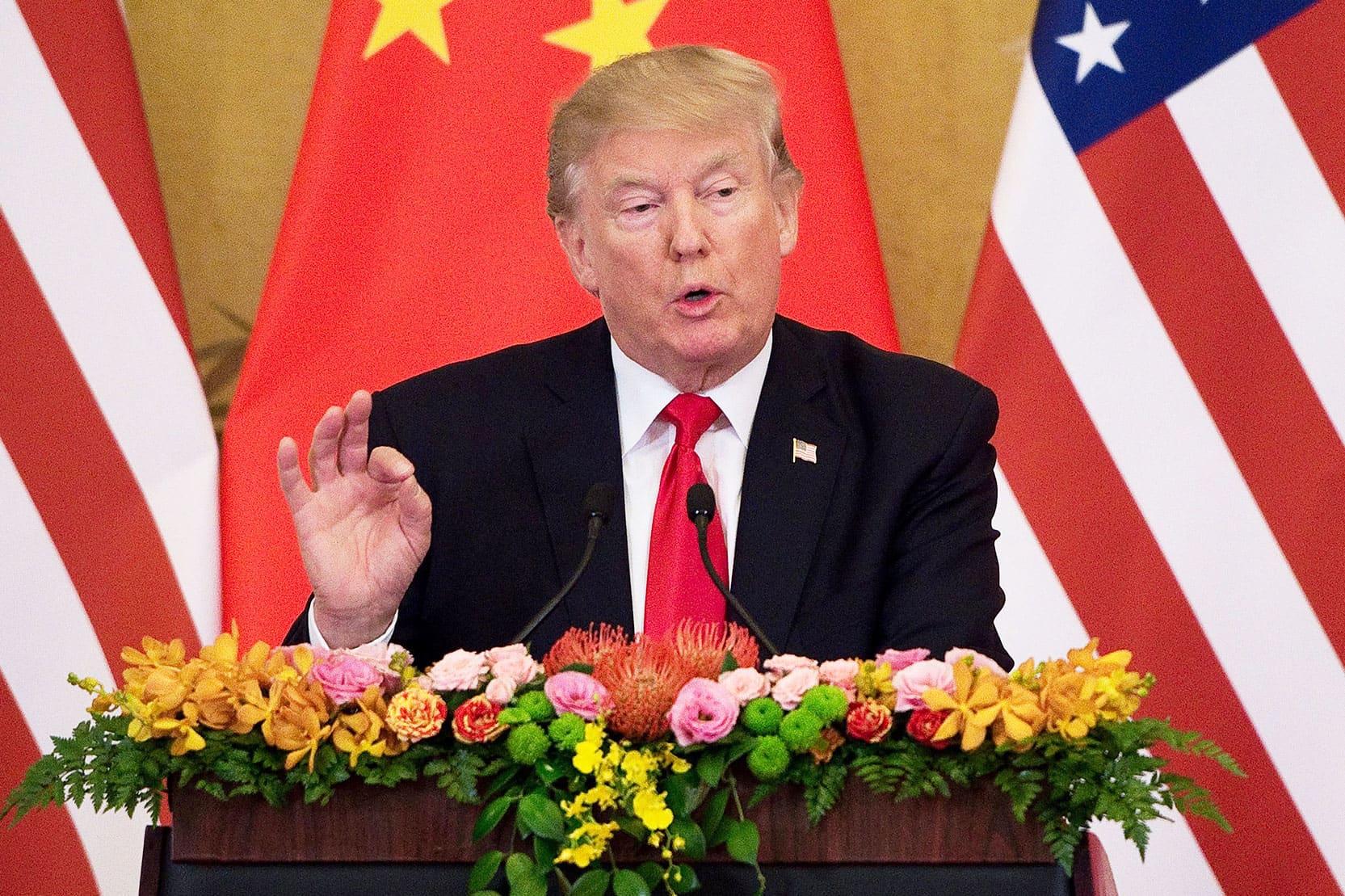Stocks resume sell-off on trade-war threat, with the Dow down 400 points - 4 minutes read

Stocks fell on Tuesday after a top U.S. trade official indicated that higher tariffs on Chinese goods are coming later this week.
The Dow Jones Industrial Average traded 400 points lower while the S&P 500 fell 1.6% as the tech sector lagged. The Nasdaq Composite dropped 1.9%.
Shares of trade bellwethers Caterpillar and Boeing fell 2% and 2.8%, respectively. Boeing also broke below its 200-day moving average for the first time since January. Chipmakers, meanwhile, led the tech sector lower. The VanEck Vectors Semiconductor ETF (SMH) declined by 2.5% as KLA-Tencor dropped 6.7%. Applied Materials and NXP Semiconductors fell more than 3.5% each.
U.S. Trade Representative Robert Lighthizer told reporters that the U.S. will increase levies on Chinese imports on Friday.
Lighthizer's comments "further increased the likelihood of a tariff step up," Keith Parker, a strategist at UBS, said in a note. A full-blown trade war would shave off 45 basis points from global economic growth, while China's GDP would take a hit of between 1.2% and 1.5%.
He also said the S&P 500 could swing 20% higher or lower, depending on whether tensions escalate or de-escalate. "We still see a trade war as low probability given the next tranche of tariffs would hit US consumer goods, but nevertheless it would have a big negative impact."
Lighthizer made his remarks after President Donald Trump tweeted he would raise current tariffs 10% on $200 billion of Chinese goods to 25% on Friday. He also threatened to impose an extra 25% levy on another $325 billion of Chinese goods "shortly."
Trump's tweets initially sent the market reeling on Monday. The Dow fell as much as 471 points while the Nasdaq dropped 2% at one point. However, equities rebounded to close well off their lows on news that a Chinese delegation would come to Washington for talks and as traders bet that Trump's tweet were just a negotiation tactic.
President Donald Trump speaks during a press conference with China's President Xi Jinping at the Great Hall of the People in Beijing on November 9, 2017.
Nicholas Asfouri | AFP | Getty Images
"I remain hopeful that a deal comes and we won't see new tariffs on Friday," said Peter Boockvar, chief investment officer at Bleakley Advisory Group. "But it's clear the level of mistrust between the two sides will last for years and some of the tariffs will remain as part of the enforcement tools."
Chinese Vice Premier Liu He is expected to join a delegation in the United States this week, raising hopes of a trade agreement despite the latest round of duties. However, he will only attend the negotiations on Thursday and Friday. He was originally scheduled to attend negotiations Wednesday through Saturday.
"The Trump administration seems to have concluded that it is time to get it done. In other words, it's either deal or no deal," said Ed Yardeni, president and chief investment strategist at Yardeni Research, in a note. But "I expect that the US and China will settle their differences on trade issues sooner rather than later."
In recent months, both China and the U.S. have indicated that trade talks were heading toward a resolution that would end the ongoing trade war between the world's largest economies. Treasury Secretary Steven Mnuchin told The New York Times last month that negotiations were in the "final laps. "
The positive news helped push the S&P 500 and Nasdaq to record highs this year. The indexes are up 17% and 22.4%, respectively, through Monday's close. The Dow, meanwhile has risen 13.3%.
"The market was just very complacent thinking a deal would happen," said Sandy Villere, portfolio manager at Villere & Co. "If they look forward, I think investors will see more volatility and lower overall returns with low interest rates."
Villere sees the higher volatility as a buying opportunity, "but we've got to get through this trade war."
—CNBC's Silvia Amaro contributed to this report.